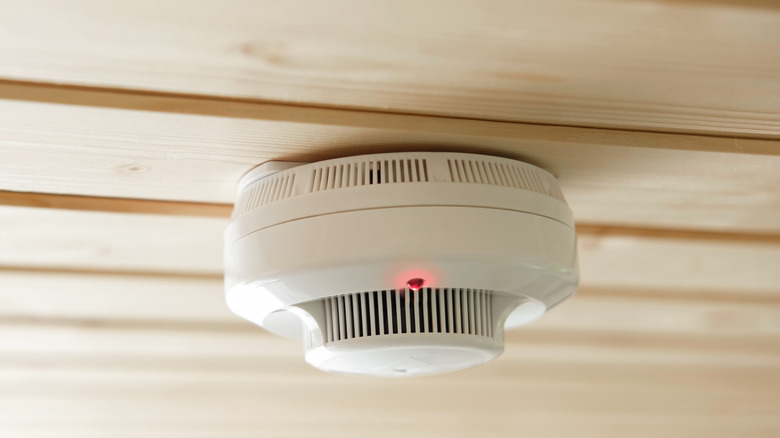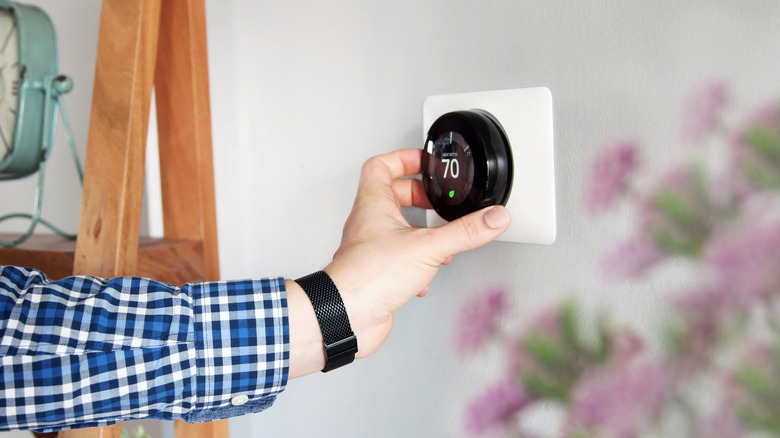The Real Reason Your Smoke Alarm Goes Off Randomly At Night (& How To Prevent It)
You're finally drifting off to sleep after a long day when the smoke alarm on your ceiling decides it's showtime. You stumble out of bed, half asleep, wondering if your house is on fire or if the smoke alarm simply decided to ruin your night. Most of us have been there. And it's kind of incomprehensible why this happens at night and not during the day when you're fully awake to deal with it. The thing is, it isn't something random, even though it feels like it. Your smoke alarm could be reacting to the temperature and humidity fluctuations in your home, hence the random beeping. But you can stop the madness by adjusting your thermostat or swapping in a fresh battery.
Basically, when the air cools down at night, the battery of your smoke alarm feels it, too. Generally, batteries work best when they're warm. That's when they have less resistance and can deliver energy easily. However, as your home temperature drops (often at night), the power output of your battery weakens. This may happen around the time of sunrise because that's when the temperature is coolest. The alarm senses this drop as a low battery that needs to be changed, even if it's not quite empty yet. As a result, it starts chirping. Then, as the day warms up, the battery perks up again, and the noise stops as if nothing happened. This issue can affect even the best smart smoke detectors.
Adjust the thermostat or change the battery to stop the beeping
According to the National Fire Protection Association (NFPA), about three in every five fire deaths take place in homes that either don't have smoke alarms or have ones that aren't functional. Don't be tempted to disconnect the alarm to stop the beeping. Properly maintaining and cleaning the appliance could protect your life. One trick to fix your beeping alarm is to turn your thermostat up a few degrees before bed. A slightly warmer room will stabilize the battery's performance, ultimately stopping annoying false low-battery alerts.
If the beeping disappears, good for you. It means you've found the culprit. However, this one's more of a temporary fix. You'll be cozy, sure, but it also means you're using extra energy (and money) to quiet your alarm, which doesn't exactly sound like a long-term plan. Plus, warmer temperatures at night could make for uncomfortable sleeping conditions.
Therefore, a more permanent solution is to swap out the battery. The nighttime beeping issue is more likely to happen with older batteries that are already low. A fresh set of batteries could still slow down a bit in the cold but likely not enough to make the device beep. Depending on the model, most smoke alarms use either AA, 9-volt, or lithium batteries. Some newer alarms even come with sealed lithium batteries built to last for up to 10 years, which means a decade of peaceful sleep with no midnight chirping. Also, make it a habit to replace the battery at least once per year or whenever the season changes and the nights start getting cooler. And if your device has been around for a decade, it might be time to replace your smoke detector. Even the best batteries can't fix an aging detector.

